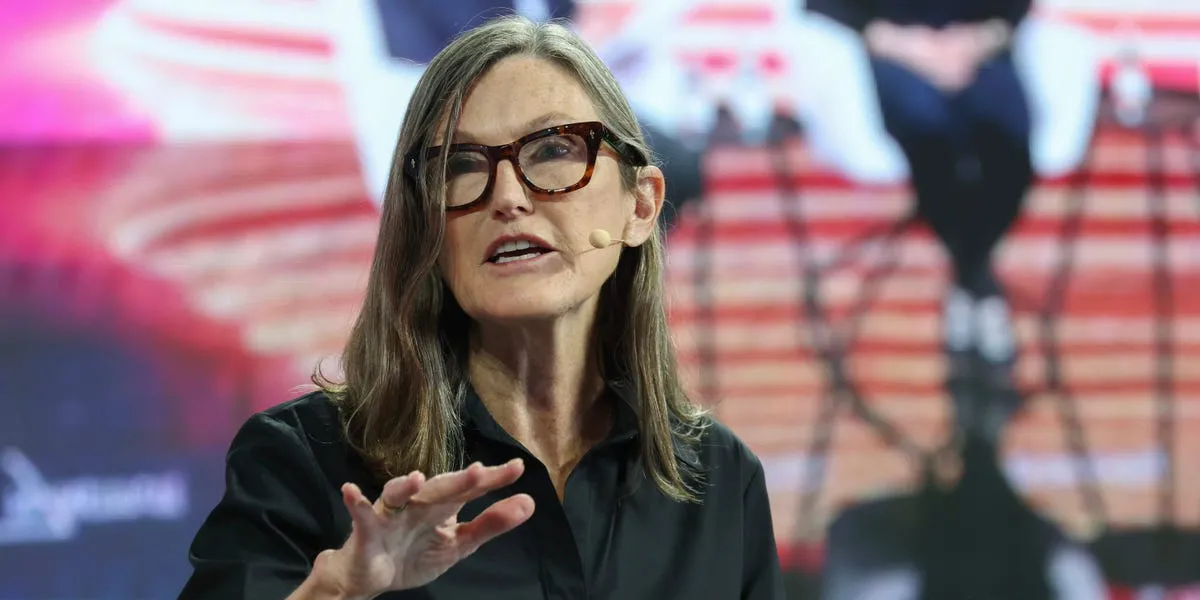
The ongoing public feud between Elon Musk and former President Donald Trump has raised significant concerns among investors regarding the extent of government influence over Musk's companies. According to Cathie Wood, CEO of Ark Invest, this evolving situation is shedding light on the intricate relationship between Musk, his ventures, and the US government. In a recent video shared on the company's YouTube channel, Wood highlighted that both Musk and investors are gaining a clearer understanding of the government's substantial control over Musk's businesses.
Many of Musk's companies, including Tesla, SpaceX, and Neuralink, have crucial ties to the government, having received billions of dollars in federal loans, contracts, tax credits, and subsidies over the years. For instance, SpaceX's Chief Operating Officer, Gwynne Shotwell, revealed that the company holds approximately $22 billion worth of federal contracts. Additionally, Neuralink, which focuses on developing brain chip technology, operates under the strict regulations of the FDA. Any unfavorable changes in the regulatory landscape could significantly impact Tesla's ambitious plans for a robotaxi service.
The feud escalated dramatically when Tesla's stock plummeted over 14% on Thursday, coinciding with the public clashes between Musk and Trump. The tension appeared to ignite on Tuesday when Musk publicly criticized Trump's "One Big Beautiful Bill," labeling it a "disgusting abomination" that would exacerbate the national budget deficit. This criticism marked the beginning of a series of increasingly hostile exchanges between the two former allies.
As the confrontation intensified, Trump threatened to revoke Musk's government contracts, prompting Musk to announce that SpaceX would start decommissioning its Dragon spacecraft, which had recently returned NASA astronauts Suni Williams and Butch Wilmore from the International Space Station. However, Musk later retracted this threat, which Wood interpreted as a sign that he was attempting to de-escalate the situation. She suggested that Musk's rift with Trump might stem from a desire to distance himself from the former administration, especially after announcing in April that he would reduce his involvement with government affairs.
Wood posited that there may have been some degree of orchestration behind the feud, asserting that it could be a strategic move by Musk to mitigate any brand damage Tesla has suffered due to the fallout. She emphasized that Musk is likely trying to disengage from the political affiliations that could hinder his company's reputation. Looking ahead, Wood expressed optimism that neither Trump nor Musk would allow this conflict to persist and that both would eventually recognize the need for reconciliation.
Despite Wood's hopeful outlook, Trump made it clear on Saturday that he has no intention of mending his relationship with Musk. In an interview with NBC News, Trump stated, "I have no intention of speaking to him. I think it's a very bad thing because he's very disrespectful." He further emphasized the importance of respecting the office of the President.
Conversely, Vice President JD Vance adopted a more conciliatory tone regarding the possibility of reconciliation. During a Thursday interview with podcaster Theo Von, Vance expressed his belief that Musk's criticisms of the president were misguided but also conveyed hope that Musk could navigate the situation and eventually return to a more amicable relationship.
As the feud between Elon Musk and Donald Trump continues to unfold, the implications for Musk's companies and the broader market remain significant. Investors and stakeholders will be closely monitoring how this situation develops, particularly in terms of regulatory pressures and governmental relationships that could affect the future of Tesla, SpaceX, and Neuralink.